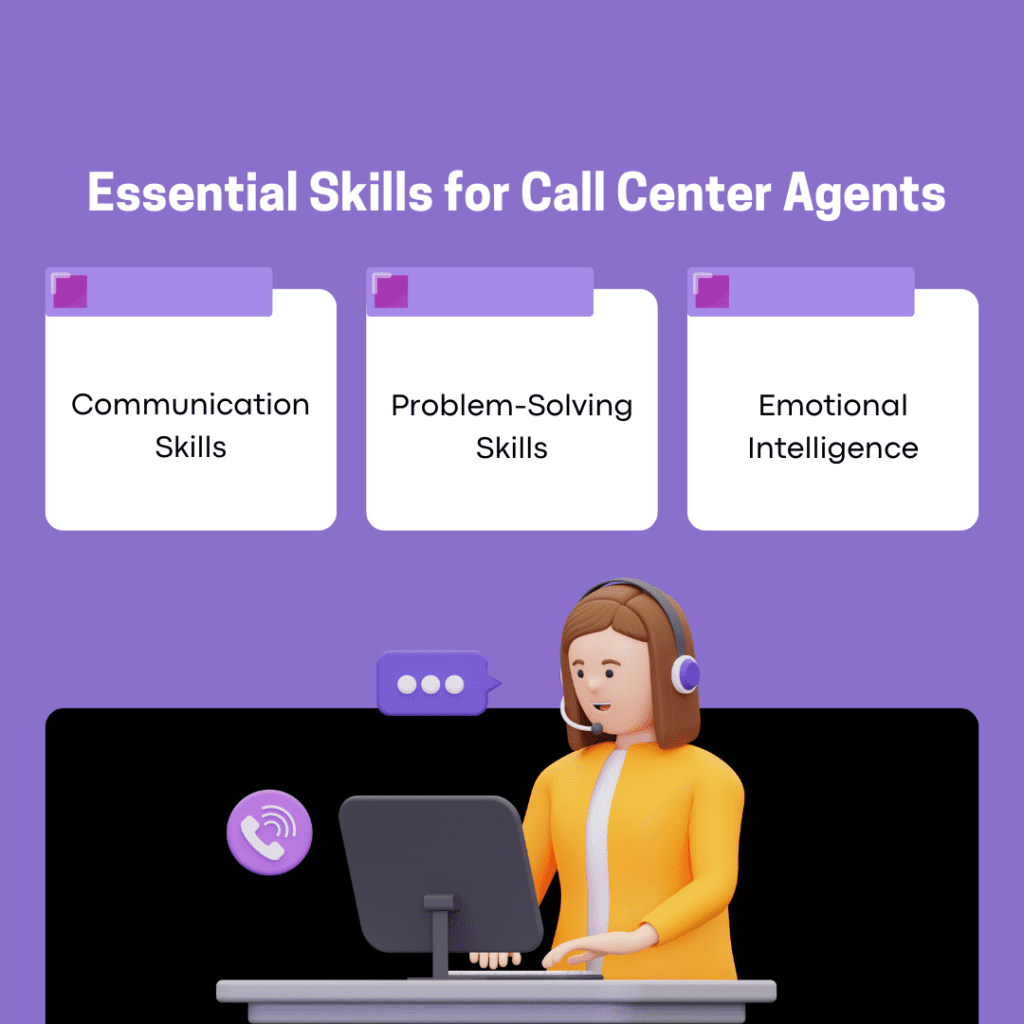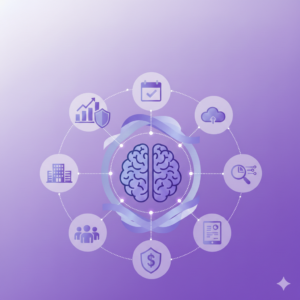Call Center Training: Tips for Enhanced Customer Service
12 Oct 2023 By: Michael Kansky
Updated
Training call center agents is key to a call center’s success. They must have the right skills and knowledge to offer great customer service and satisfy customers. This article will share tips for building a good training program for call center agents.

Understanding the Importance of Call Center Agent Training
Call center agents are crucial as they represent the company. They handle inquiries, solve problems, and ensure customer happiness. Proper training is essential for them to work effectively and professionally.
The Role of Call Center Agents
Frontliners are the first contact for customers, tasked with meeting their needs and resolving concerns. They need strong communication, problem-solving skills, and emotional intelligence to manage different customer situations well.
Customers expect a friendly, knowledgeable agent to help with their questions or issues when they call. Agents must know the company’s products or services well to give correct, useful info. They should also manage tough or upset customers calmly and professionally.
Moreover, call center agents must listen well. They need to grasp the customer’s problem and offer the right help. Active listening is key to collecting all details and fully meeting the customer’s needs.
Why Effective Training Matters
Good training equips call center agents with skills and knowledge for various customer situations. It boosts their confidence in serving customers, leading to better customer satisfaction and loyalty.
In training, agents learn about the company’s offerings in detail. They learn to use software and tools for customer info and issue resolution. They also get tips on managing tough customers and calming tense situations.
Furthermore, proper training gives agents a deep understanding of the organization’s policies and procedures. This helps them give accurate and consistent info to customers, ensuring professionalism and reliability.
Good training cuts down on escalations and complaints. Well-trained agents often solve issues on the first call, avoiding further escalation. This saves time and resources and improves the customer experience.
In addition, effective training also teaches agents to spot upselling or cross-selling chances. They learn to identify customer needs and suggest extra products or services. This boosts revenue and enhances the company’s image as a trusted advisor.
In summary, training is crucial for preparing call center agents to handle customer interactions well. It gives them the skills, knowledge, and confidence for excellent service, leading to better customer satisfaction, loyalty, and organizational success.
Essential Skills for Call Center Agents

When hiring call center agents, consider their need for a wide skill set. Focus on these key skills during training:
Communication Skills
Good communication is key to great customer service. Agents should listen well, speak clearly, and choose the right tone and words. They must share info well and show empathy, making a positive customer experience.
💡 Tip
Use Thank You For Calling call center agent test to grade typing, spelling, grammar and speech clarity before selecting a hiree.
Call center agents should also learn non-verbal communication, like reading body language and facial expressions. This helps understand customer emotions and needs, allowing agents to tailor responses for a more personalized and satisfying experience.
Agents need training in written communication, especially for email or chat inquiries. They should write clearly, concisely, and professionally, making sure messages are easy to understand and match the company’s brand.
Problem-Solving Skills
Call center agents often deal with tough customer problems. Training should enhance their critical thinking. They need to learn to dissect issues and find the right solutions. Identifying what customers need quickly is key. This helps in addressing their concerns effectively.
Additionally, it’s important for call center agents to have a solid knowledge foundation. They should know the ins and outs of the products or services they support. They also need access to detailed resources and databases. Understanding the company’s offerings thoroughly allows agents to give precise and useful information, solving customer problems more effectively. Integrating AI can also boost the productivity and accuracy of customer service agents.
Moreover, it’s vital to train call center agents in making smart decisions. They need to grasp the company’s rules and know when to bump a customer’s issue up to higher support levels. With informed decision-making, agents can resolve customer concerns quickly and to their satisfaction.
Emotional Intelligence
Emotional intelligence is crucial for handling customer feelings while staying professional. Training should teach call center agents to control their emotions, understand customers, and stay composed during tough times. Boosting emotional intelligence enables agents to connect with customers and manage conversations with care.
💡 Tip
When interviewing for a call center agent position one of the most important questions we ask is:
“Please define failure“
The answer we are looking for is something like:
“Failure is a way to learn“
If the answer is anything like “When result does not meet expectation” we generally avoid hiring this person.
What we are looking for is someone who can treat failure as a learning experience. People that do that tend to be the best employees, quickly rising in ranks and becoming indespensable.
Moreover, it’s important to train call center agents in resolving conflicts. They need to learn how to calm tense situations and work towards solutions that everyone agrees on. Managing conflicts well can transform challenging experiences into positive outcomes, making customers feel appreciated and taken care of.
Additionally, training call center agents in cultural sensitivity is essential. In our global society, call centers frequently receive calls from people with various cultural backgrounds. Agents must learn to recognize and honor different cultural norms and practices. This knowledge ensures they deliver a tailored and inclusive experience to every customer.
In summary, call center agents need a variety of skills to succeed. Training that focuses on enhancing communication, problem-solving abilities, and emotional intelligence can prepare them well. With these skills, agents are more equipped to resolve customer issues, forge solid relationships, and play a significant role in the organization’s success.
Trending Now
Mindmaid, an AI virtual assistant startup, is expanding to teach chatbot training using advanced tech like OpenAI and Google’s bots. With a year’s work, it now serves over 5,000 users, handling 50,000 daily inquiries worldwide. Plans for 2024 include teaching AI chatbot creation and the AI Copilot method, aiming to drive digital transformation and prepare AI engineers. Meanwhile, firms like LovinBot and Unikon are advancing their AI assistant tools, showing a move towards virtual assistants in training and various sectors, highlighting AI’s growing role in education and customer service.
Types of Call Center Training Methods
In-person Training: Trainers teach agents directly, either face-to-face or through virtual sessions, helping them learn essential skills.
Role-playing: Agents practice handling real-life customer scenarios to improve communication and problem-solving. There are AI roleplay tools available today that support this with scenario-based practice and performance insights.
Online Learning: Agents complete interactive modules, videos, and quizzes at their own pace.
Shadowing: New agents watch experienced team members take calls to learn from real examples.
One-on-one Coaching: Supervisors offer personalized guidance to help agents improve and grow.
Fun Challenges: Training includes games, quizzes, and competitions to make learning more exciting.
Call Reviews: Agents listen to recorded calls to spot areas for improvement and learn from their own work.
Peer Mentorship: Experienced agents guide new hires, sharing their tips and insights.
Designing a Comprehensive Training Program
A successful training program requires careful planning and a comprehensive approach. Here are some key elements to consider when designing a call center agent training program:
Setting Clear Expectations
Setting clear goals for call center agents is essential. Training must highlight the company’s values and customer service benchmarks. This clarity helps agents know their roles. It also motivates them to aim for excellence.Training must highlight the company’s values and customer service benchmarks using an AI presentation formatter. This clarity helps agents know their roles and motivates them to aim for excellence.
Incorporating Role-Play Scenarios
Role-play exercises mimic real customer talks. They let agents test their skills. Training should include these scenarios for practice and feedback. This builds agent confidence and problem-solving skills.
Ongoing Training and Development
Training must be ongoing, not just a one-off event. It keeps agents current with new trends, tech, and service methods. Offering regular sessions, workshops, and courses is key. This ensures agents have the skills and knowledge they need.
Utilizing Technology in Call Center Training
Technology can enhance the effectiveness of call center agent training programs. Here are some technological tools that can be utilized:
Interactive Training Software
Interactive training software offers virtual hands-on learning. It simulates various customer situations, letting agents practice safely. This software supports learning at one’s own pace and gives instant feedback for ongoing enhancement.
Virtual Reality Training
Virtual reality (VR) technology offers immersive training for call center agents. It can mimic real-world customer interactions in a lifelike setting. This allows agents to refine their skills effectively. VR training boosts their confidence and readies them for various challenges they might face.
Evaluating the Success of Your Training Program
Evaluating training programs is crucial. It helps find areas to improve. Here are ways to measure your program’s success:
Key Performance Indicators
Key performance indicators (KPIs) offer insights into agent performance. Metrics like average handling time, first call resolution, and customer satisfaction ratings assess training’s effect on agents and customer experience.
Feedback from Agents and Customers
Gathering feedback from both agents and customers is key to gauging training effectiveness. Using surveys, focus groups, and individual meetings can reveal insights into the training experience and highlight areas needing work. Customer feedback is crucial for evaluating how training affects customer satisfaction.
Making Necessary Adjustments for Improvement
After evaluating results, adjusting the training program is crucial for better outcomes. Consider agent and customer feedback to refine the curriculum, add new methods, or focus on areas needing more development.
Call Center Agent Training Best Practices
Set Clear Goals: Define specific objectives for what agents should achieve during training, like handling call volume or improving customer satisfaction.
Focus on Communication Skills: Teach agents to listen actively, stay calm, and communicate clearly to enhance customer interactions.
Use Real-life Scenarios: Incorporate role-playing and real call examples to prepare agents for common customer issues.
Provide Ongoing Support: Offer continuous coaching and feedback to help agents improve over time.
Encourage Product Knowledge: Ensure agents understand the products or services thoroughly to better assist customers.
Promote Multitasking Skills: Train agents to manage multiple systems, like CRM tools, while handling customer calls.
Measure Progress: Track performance through metrics like first call resolution, average handling time, and customer satisfaction.
Foster a Positive Environment: Create a supportive atmosphere where agents feel comfortable asking questions and seeking help.
Incorporate Technology: Use e-learning platforms, learning and development software, call simulations, and analytics tools to enhance training efficiency.
Personalize Training: Tailor sessions to individual agents’ strengths and weaknesses for more effective learning.
Conclusion
In conclusion, thorough training is key for readying call center agents for their duties. By offering in-depth programs that sharpen vital skills, embracing technology, and regularly checking their impact, organizations can make sure their agents provide outstanding customer service. This contributes significantly to the organization’s overall success.
“Tell me and I forget, teach me and I may remember, involve me and I learn.”
– Benjamin Franklin
Ready to elevate your customer service? Look no further than HelpSquad BPO. Our dedicated virtual assistants and 24/7 customer service team are here to provide exceptional support, streamline your back-office operations, and conduct thorough research—all at a competitive rate starting at just $8.50 per hour. Don’t miss out on the opportunity to enhance your customer satisfaction and drive business growth. Start your trial today and experience the HelpSquad difference!


